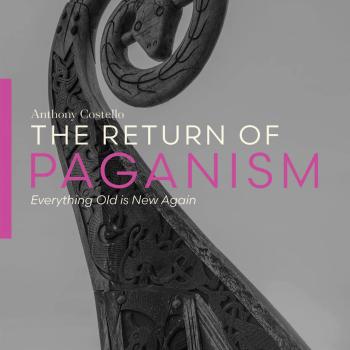Read time: 10 minutes
When it comes to the movement of the Spirit of God, I am no skeptic. I just want to make that clear at the outset of this short reflection on what has been going on at Asbury Seminary in Kentucky. As someone who has experienced God move powerfully in his own life, to include sensately (via the senses), I never doubt that God can and does manifest Himself in experientially significant ways; not just in biblical times, but also today. This includes revivals. Moreover, religious experience and “sentimentalism” can, and should, be distinguished. Many who are being overly cautious about Asbury are, nevertheless, rightly concerned about a mere, or concocted, sentimentalism. But, concern over sentimentalism does not mean what is happening at Asbury is not a true revival.
Religious Experience vs. Sentimentalism
Sentimental outpouring of emotion is a genuine feature of any legitimate religious experience. Any direct manifestation of God that is sensately detected by human beings is going to elicit powerful emotions. This is inescapable, since to experience God directly is to experience God with one’s whole being. One’s whole being includes not just the intellect and the will but also the emotions or affections (the three faculties of the soul).
Because of this, we should not dismiss emotional expressions, even very powerful ones, out of hand. In his extended treatise on religious affections, Jonathan Edwards argues powerfully that any genuine experience of God has to have an affective component:
I am bold to assert, that there never was any considerable change wrought in the mind or conversation of any person, by any thing of a religious nature that ever he read, heard, or saw, who had not his affections moved. Never was a natural man engaged earnestly to seek his salvation; never were any such brought to cry after wisdom, and lift up their voice for understanding, and to wrestle with God in prayer for mercy; and never was one humbled, and brought to the foot of God, from any thing that ever he heard or imagined of his own unworthiness and deservings of God’s displeasure; nor was ever one induced to fly for refuge unto Christ, while his heart remained unaffected. Nor was there ever a saint awakened out of a cold, lifeless frame, or recovered from a declining state in religion, and brought back from a lamentable departure from God, without having his heart affected. And, in a word, there never was any thing considerable brought to pass in the heart or life of any man living, by the things of religion, that had not his heart deeply affected by those things.
Jonathan Edwards, On Religious Affections
The issue, then, is not to be concerned about the outpouring of emotion simpliciter. The issue is to discern what is the source of the emotional outpouring. Because we know that other, far more mundane experiences (like rock concerts, or war) can generate strong emotions that are analogous to authentic religious experience, we do need to be careful. However, caution and skepticism are not exactly the same thing. Caution would indicate an open mind to a special manifestation of God to men and women, while also being willing to check the details to see if there is a reason to doubt.
Evidence for Authentic Revival
That said, even without a thorough, first-hand investigation of the goings-on at Asbury, we have evidence to suggest this is a legitimate expression of the Divine Presence. First, Asbury is a likely place for there to be right discernment about what is happening. It is home to many educated, thoughtful, reasonable and careful Christians scholars. One of these is New Testament scholar Ben Witherington, who has written about the happenings at Asbury here on Patheos.
Second, there are historical precedents at Asbury: to include a 2003 incident and a similar one in 1970. What is noticeable is that these prior incidents, and the current one, are spaced apart by a fair amount of temporal distance. 33 years between the first two incidents, and a 20-year gap between the last one and this years’ make it unlikely that these are planned or orchestrated events. If there were some regularity in these manifestations, say every other year the week before Easter, one would be justified in being suspicious.
Third, we have no counter evidence to suggest this isn’t a legitimate movement of God. In other words, we have nothing that suggests at this point that is was something someone arranged, staged or engineered in some kind of hoax-like fashion. All the reports suggest spontaneity of everyone involved. If this is not a movement of God, then you would have to posit one of two other explanations: the movement of some other supernatural force or spirit, or something like a mass psychosis. However, given the reports we have, the first is incredibly unlikely (even if demonic entities may be trying to mess up the works in some way), and mass psychosis is so implausible on the face of it, it hardly warrants consideration as a possible explanation.
As such, we have good reasons to believe that the sentiments most of us are observing remotely, are associated with genuine experiences of the Holy Spirit working in the hearts and minds of believers (and perhaps now some former nonbelievers). Given the evidence we have, it seems not only plausible but likely that this is a true revival.
What We Would Expect To See Next
Nevertheless, if this is an actual revival, we would expect to see a few more things happen in the aftermath of the initial outpouring. However, while we would expect the following to occur, that does not mean we will actual know about it occurring. These two are not the same: something being the case and knowing about something being the case.
First, we would expect to see in many who attended the potential revival, a change in their spiritual and moral life going forward. Spiritual renewal leads to either a new or renewed commit to a life in Christ, which is, by definition, the pursuit of purity and holiness. If the Spirit of God was poured out, and if it was received by those in attendance, then that Spirit is not going away once the chapel or the campus is vacated.
The Spirit of God now is living and active in a number of individual lives, either for the first time, or in a new way. That means that each of those individual lives will become more powerful vehicles for the Gospel of Christ to spread throughout the land (and, given technology today, perhaps throughout the world). However, as I mentioned above, it will be hard to track this, even with our modern technology. So while we can expect it to happen, that doesn’t mean we will know about it happening.
Second, not only will individual lives be transformed, but the boldness to preach and teach the Gospel will increase. When the disciples received the Holy Spirit at the inception of the Church (Acts 2:1-12), they received the power to communicate the good news of Jesus Christ. Any genuine revival will not cease in the place it began, it will disseminate to other locations as newly embolden souls go forth. However, again, this secondary movement of God will be difficult to track or quantify. Still, if a genuine movement of God just occurred at Asbury, we can be confident that there will be an increase in evangelism that follows.
Third, however, we would also expect that as time goes on, the normal and the mundane will reassert themselves, at least to some degree. Every believer understands this dynamic of experiencing God directly, being strengthened and refreshed to do His work, only then, at some point, to lose, at least in part, the spiritual quickening that has been given. However, even as the world snaps back into place, the work that God performed in and through the revival will not simply disappear or evaporate as if it never happened. It only means that the powerful sensations that were helpful in aiding us to the advance of the Kingdom of God, will have to be replaced by a tenacious willingness to continue God’s work, and that in spite of the lack of emotional uplift we had experienced.
My Only Quibble with The Asbury Revival
My only concern about the recent events at Asbury do not really have to do with the events themselves, but with our cultural response to them. I have noticed over the years the tendency in our country to ascribe a certain status to events, or even persons, before there really has been sufficient time to adjudicate their place in history. We see this, for example, in politics, when only a few months into a particular presidency, the media is already dubbing that presidency an “era,” for example, the “Trump era” or the “Biden era,” even though Trump was only a one-term president, and Biden has not yet even finished a term.
Because of our cultural impatience and, honestly, social infantilism, we tend to hyperbolize everything. Everything is “awesome,” which makes the word itself rather trite. We “love” everything, from our spouses to donuts. Everything we experience that is relatively good is “The greatest ____ ever!” As such, my only concern about the Asbury “revival” is that it was already being labelled a revival about three days into the event. This leaves little time to reflect, to compare it with other prior events of a similar nature and, as implied, to weight the evidence for and against it being a genuine “revival.” In general, we need to be a bit more careful as Americans about granting a special status to something being worthy of “going down in the annals of history,” before the temporal paint has even dried.
Other than that, all I can say is that yesterday (2-19-2023) morning I watched the livestream from Asbury for about 3 hours as I prepared to go to my own church. I too was filled with encouragement and hope as I listened to the worship and caught portions of the preaching. In the end, my final reflection on Asbury is the simple reaffirmation that God is always bigger than how I think of Him. His plans are beyond me, and He is working not only in my life and my immediate circle, but throughout the entire country, around the world, and everywhere in His creation.
When we see things happening at places like Asbury, we might do well to remember the words of Job:
I know that you can do all things;
no purpose of yours can be thwarted.
3 You asked, ‘Who is this that obscures my plans without knowledge?’
Surely I spoke of things I did not understand,
things too wonderful for me to know.4 “You said, ‘Listen now, and I will speak;
I will question you,
and you shall answer me.’
5 My ears had heard of you
but now my eyes have seen you.
6 Therefore I despise myself
and repent in dust and ashes.”Job 42:2-6
As we do the necessary work of discernment, let’s be careful not obscure God’s purposes on account of our own ignorance of His powerful and unexpected ways.













